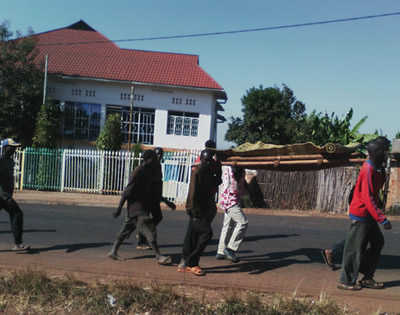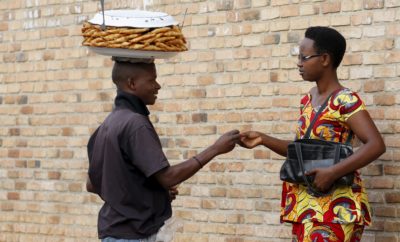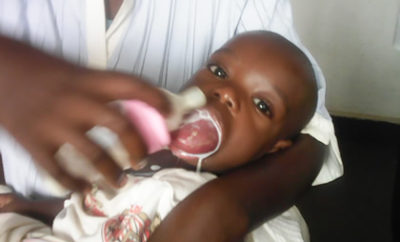
Burundi: Malaria takes a worrying pace
More than 3,700 cases of malaria deaths were recorded throughout the country in 2016. A report by the World Health Organization at the end of January 2017 calls on Burundi to declare the epidemic. In the urgent case, the action for the fight against malaria ALUMA asks the government to think about the intra-house spraying in addition to the mosquito net.
According to this WHO report, the analysis of the last five epidemiological data revealed that the epidemic thresholds were largely exceeded compared to the previous 5 years, with a more pronounced scale in the health districts of the north, center And East of the Country. The study was conducted in four provinces of the country namely Gitega (center), Kirundo, Muyinga and Ngozi (in the north).
Since 2011 until 2016, 82 percent of Burundians have suffered from this disease. This fact notes the report revealed that malaria remains the first public health problem in the country and a threat to socio-economic development. According to this report more than four million seven hundred thousand malaria cases have been recorded in 2014, the figures have increased to more than five million three hundred thousand in 2015. In 2016, these experts of the WHO, seven million Eight hundred thousand people suffered from this “epidemic”.
What factors of this outbreak
Climate change, an increase in the severe malnutrition rate of rice, insufficient health information system, low coverage of malaria prevention activities; The extension of rice in the marshes are the main factors responsible for the outbreak of malaria, the report notes.
For its part, the Malaria Action in Burundi, ALUMA, counts 106 cases of deaths following malaria since 2017. Ambassador Albert Mbonerane, his president who relies on the recent report of the ministry in charge of the More than seven million Burundians have caught malaria in 2016, of which 289 people have died. Despite the many causes and vectors of malaria, Albert Mbonerane finds these figures very alarming.
According to this environmental figure, the mosquito net impregnated with insecticides is not enough to counter the outbreak of malaria caused by the mosquito. “The government should think of intra-home spraying in addition to the mosquito net to avoid the multiplication of its vector that finds refuge in the waters that stagnates in the perimeter of the homes,” advises Amb. AlbertMbonerane.
Concerning his treatment, he admits that artesunate / Amodiaquine are the few drugs administered by patients including simple malaria. According to WHO guidelines, the efficacy of these drugs should be evaluated every two years. Albert Mbonerane deplores the fact that since its dissemination in 2005, this evaluation dates from 2008. He fears that these molecules are no longer effective in trying to reduce the worrying pace of malaria in Burundi.
About the Ministry
The director of the national malaria program recognizes that the numbers have been galloping over the past five years. Dionise Nizigiyimana estimates that the figures put forward in this report by the WHO are going to diminish from the beginning of this year. He added that Burundians should use mosquito nets instead of using them in fishing or for other purposes.






